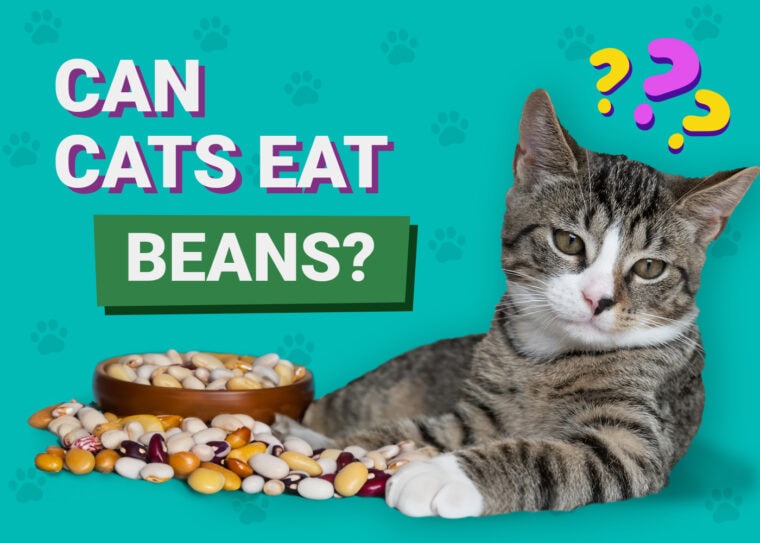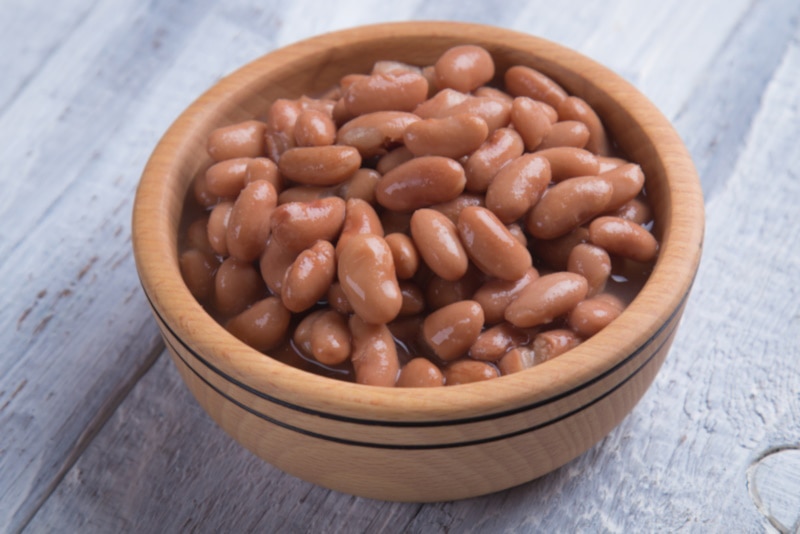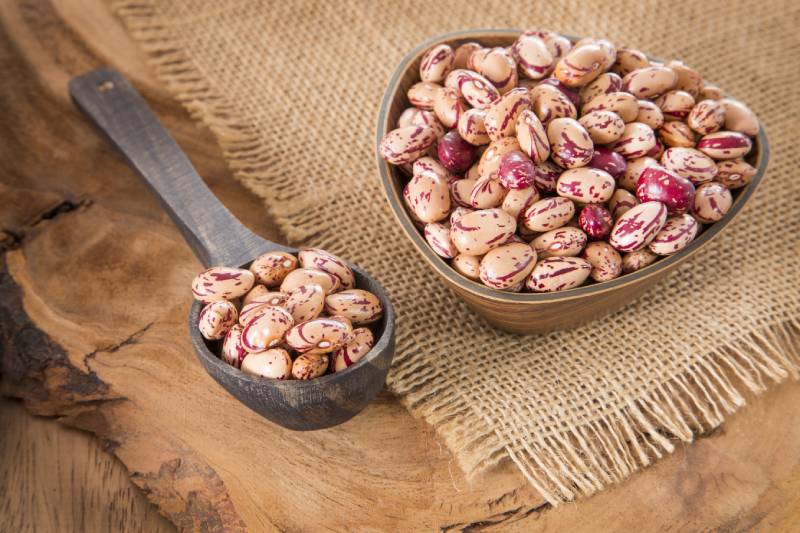
Click to Skip Ahead
Beans provide humans with nutrients, protein, and fiber, and they make an excellent low-calorie dish. There are many different types of beans, such as green beans, black beans, pinto beans, and so on. If you’re a cat owner, have you ever had your kitty show interest in trying your beans? Is it safe to let your cat eat beans? The short answer is that cats can eat beans on occasion, but it’s not recommended.
Read on to learn what types of beans you can share with your feline and how to feed them should your cat want to give them a try.
Can Cats Eat Beans?

Some beans are non-toxic to cats, but that doesn’t mean you should feed them to your cat often. Cats are obligate carnivores, meaning they require meat to survive, but they can have the occasional treat, such as beans.
The problem with some particular beans is that a cat’s digestive system is not designed to process certain foods—their digestive system is equipped to process meat and not much else; however, this doesn’t mean your cat can’t have an occasional treat of something other than meat.
Keep in mind that beans can cause your cat to have tummy issues, such as vomiting, diarrhea, and gas. You don’t want your cat to be uncomfortable, so give only one to three beans on occasion, but start with just one and monitor how your cat does afterward. If your cat develops digestive issues, halt giving your cat beans.
What Types of Beans Can My Cat Eat?
Now that we know cats can have beans on occasion, what kinds of beans are safe? Let’s break it down.
Black Beans

Black beans are low in fat, high in protein, and offer vitamins A and C for humans. However, cats do not need the vitamin C from these beans because they can make their own, but you can give an occasional black bean to your cat.
Black beans are hard for your cat to digest, and giving too many will likely cause gas and possibly diarrhea, making it vital to only give one or maybe two once in a while.
Green Beans

Green beans are low in calories and perfectly safe for your cat to eat. The occasional green bean can provide your cat with something different, and they provide a few nutritional benefits. They are high in fiber and can provide constipation relief, as well as relief from diarrhea because the soluble fiber aids in bulking up the soft or runny stool.
Pinto Beans

Pinto beans are another high-protein-high fiber bean belonging to the legume family and are safe for your cat to enjoy on occasion.
Kidney Beans

Kidney beans come in white or red variations, and they look like a kidney, hence the name. They are also high in protein and fat, as well as potassium and zinc, which could be beneficial to your cat to aid with muscles, skin, and nerves.
FAQ
How Do I Feed Beans to My Cat?
Always cook the beans before giving any to your cat. An important factor here is to cook the beans in water first without any seasonings. Refrain from giving your cat a raw bean of any kind due to the possibility of the bean being contaminated with bacteria or lectins, found on the surface. Not only that, but a raw bean could cause abdominal pain because raw beans are extremely hard for your cat to digest. Another reason to cook them is a raw bean could become a choking hazard or cause an intestinal blockage, which could quickly become a life-threatening issue.
You should also soak any beans you plan to feed your cat according to the instructions on the package, as some beans require soaking for 6–8 hours.

Can Cats Eat Canned Beans?
You should avoid giving your cat canned beans because some canned beans have high amounts of sodium or other processed additions that your cat does not need, with some being downright toxic, such as garlic and onions. Such beans to avoid are baked beans, refried beans, or any canned beans.
What Should My Cat’s Regular Diet Consist Of?
It’s best to look for cat food approved by the Association of American Feed Control Officials (AAFCO). That way, the food will consist of all the necessary nutrients your cat needs daily to thrive.
Knowing exactly what your feline companion can and cannot eat will help you become the best pet parent. Recognizing that not all cat bowls are equal is also key! The Hepper NomNom Cat Bowl sets itself apart from traditional options by catering to the specific needs of cats. The innovative design offers whisker relief via shallow dishes and promotes digestion with a slight bowl elevation. Find out if the Hepper NomNom is right for your cat by clicking here.
At Pet Keen, we’ve admired Hepper for many years and decided to take a controlling ownership interest so that we could benefit from the outstanding designs of this cool cat company!

Final Thoughts
Beans are non-toxic to cats and your cat can enjoy the occasional bean if he desires. Remember to always cook the beans without any seasonings, and soak the beans according to the instructions before cooking. Avoid any type of canned beans, and always provide a complete and balanced diet for your cat daily.
If your cat has medical issues, always consult your vet before giving something extra to your cat.
Featured Image Credit: sophiecat, Shutterstock







